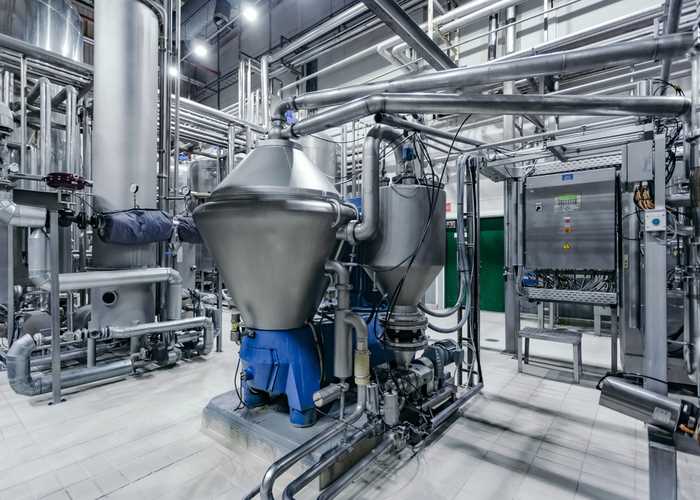The cooling requirements of an industrial setting differ significantly from those of a general purpose commercial premises or office building. By their very nature, industrial processes generate excessive heat, and in most cases, require exacting conditions to ensure product quality and workplace safety.
Hence the need for industrial process cooling - systems designed specifically to meet the varying needs of these demanding environments.
As a simple definition, process cooling is a method of removing unwanted heat from an industrial process. Although it effectively uses the same principles of heat transfer as comfort cooling, the two are not to be confused.
Looking at them side by side gives a clearer picture of their unique uses.
Comfort cooling systems are used to control temperature and humidity in a given space. As the name suggests, their purpose is to create not precise, but comfortable conditions for the people that occupy these spaces.
Air source heat pumps are a form of comfort cooling technology. Though these can be used for space heating, if we consider their cooling function this is only used in the warmer months. These systems operate at a single flow rate, pulling heat from the air by way of a refrigeration circuit to create the desired comfort conditions.
Process cooling systems are far more complex. They are used when accurate and constant temperatures need to be maintained, and are subsequently used year round.
These systems are comprised of a refrigerant circuit and a process cooling circuit. The latter pumps a process fluid - typically water or glycol - to the application to absorb unwanted heat. This heat is then removed from the process fluid by the refrigeration circuit.
Process cooling systems are capable of adapting to varying flow rates, and maintain the required cooling capacity despite any changes to ambient temperature or heat load.

A process cooling system is designed to protect the integrity of any given industrial process. It is customised to be application specific, and may be used to:
Cool certain equipment - like laser cutting machines or hydraulic circuits.
Cool a certain process - such as printing, or the fermentation of alcohol.
Cool a certain product - plastics during moulding, for example.
In all these cases, accurate temperature control is critical, and process cooling systems are essential for:
A process cooling system is not a single piece of equipment, but a complex configuration of multiple parts, including but not limited to:
All of these parts are carefully selected to meet the exact needs of a process and as such, design requires expert knowledge.
At Loughborough Air Conditioning, we have extensive experience in this area, having worked with clients in multiple sectors - from manufacturing to pharmaceuticals. We also provide ongoing support for process cooling solutions with Planned Preventative Maintenance (PPM).
